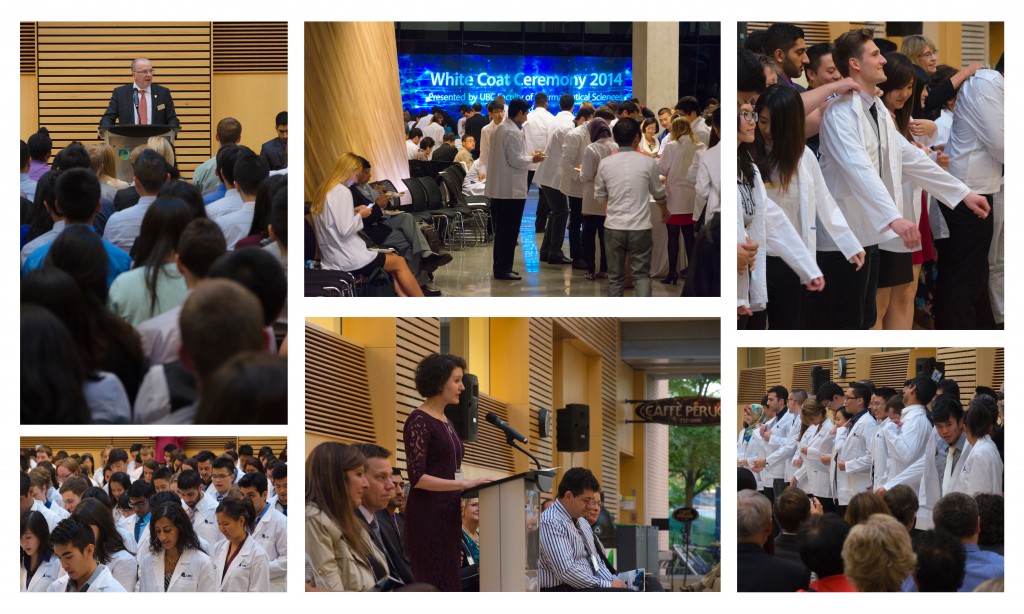Last Thursday evening UBC Pharm Sci together with the BC Pharmacy Association (BCPhA) hosted the 2014 White Coat Ceremony. In this annual event the Faculty officially welcomes new BSc(Pharm) students, and celebrates the commencement of their journey. Incoming students recite and sign the Pledge of Professionalism (below) and are presented with a white coat.
“The White Coat Ceremony was one of the first instances where our entire class was together,” says Anna Chen, a first year BSc(Pharm) student. “I am very excited to spend the next four years getting to know each and every one of my classmates! Congratulations to everyone on getting into the Faculty!”
The White Coat Ceremony is an important part of the students’ journey into the profession as it instills a sense of pride and belonging, while highlighting early on the ethical and professional responsibilities of the profession.
The evening included speeches from Dr. Michael Coughtrie, professor and dean, UBC Faculty of Pharmaceutical Sciences, David Pavan, President of the BC Pharmacy Association, Marion Pearson, Director of the Entry-to-Practice Program, Rachel Edey, 4th year BSc(Pharm) student and Barbara Gobis, Director of the Pharmacists Clinic.
UBC Faculty of Pharmaceutical Sciences Pledge of Professionalism
For students in the Faculty of Pharmaceutical Sciences at The University of British Columbia, there is a need to build and reinforce a professional identity founded on integrity, ethical behaviour, and honour. This development, a vital process in pharmacy education, will help ensure that you are true to the professional relationship you establish between yourself and society as you become a member of the pharmacy community. Integrity will be an essential part of your ever y day life and it is incumbent upon you to pursue all academic and professional endeavors with honesty and commitment to service.
To accomplish this goal of professional development, I as a student in the Faculty of Pharmaceutical Sciences at The University of British Columbia will:
ACCEPT the responsibility for my actions as a student and as a healthcare professional that will reflect on both myself and my school.
CONSIDER the needs of others before myself.
DEVELOP a sense of loyalty and duty to the profession of pharmacy by contributing to the well-being of others and by accepting accountability for membership in the profession.
FOSTER professional competency through life-long learning and striving for high ideals, teamwork, and unity within the profession.
COMMIT to the Oath of a Pharmacist and the Code of Ethics for Pharmacists as set forth by the profession.
DEDICATE my life and practice to excellence by an ongoing reassessment of personal and professional values.
MAINTAIN the highest ideals and professional attributes to ensure optimal patient care.
*Adapted from the American Pharmaceutical Association (APhA) and the American Association of Colleges of Pharmacy (AACP) Pledge of Professionalism


 Follow
Follow


